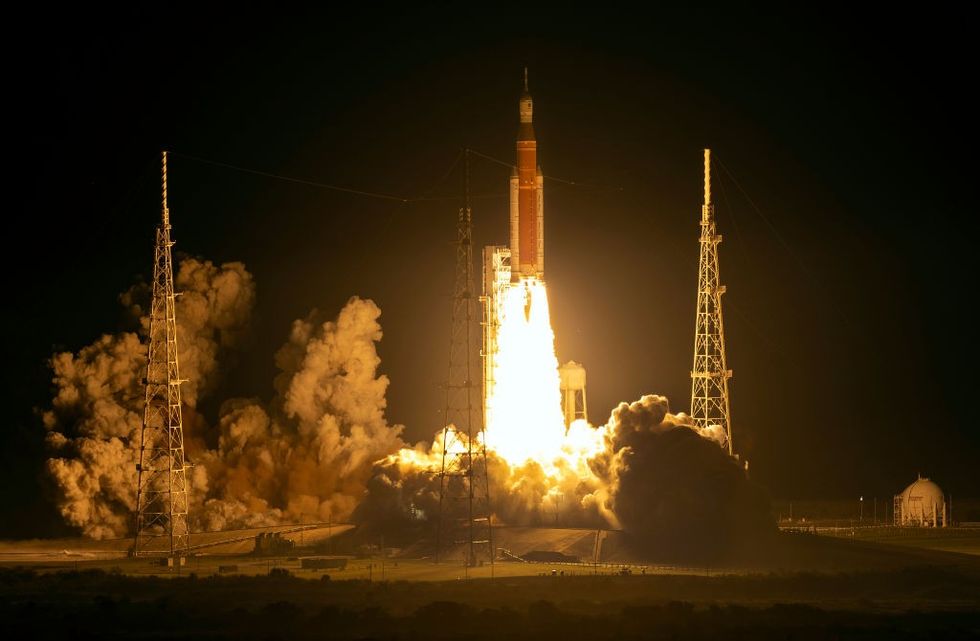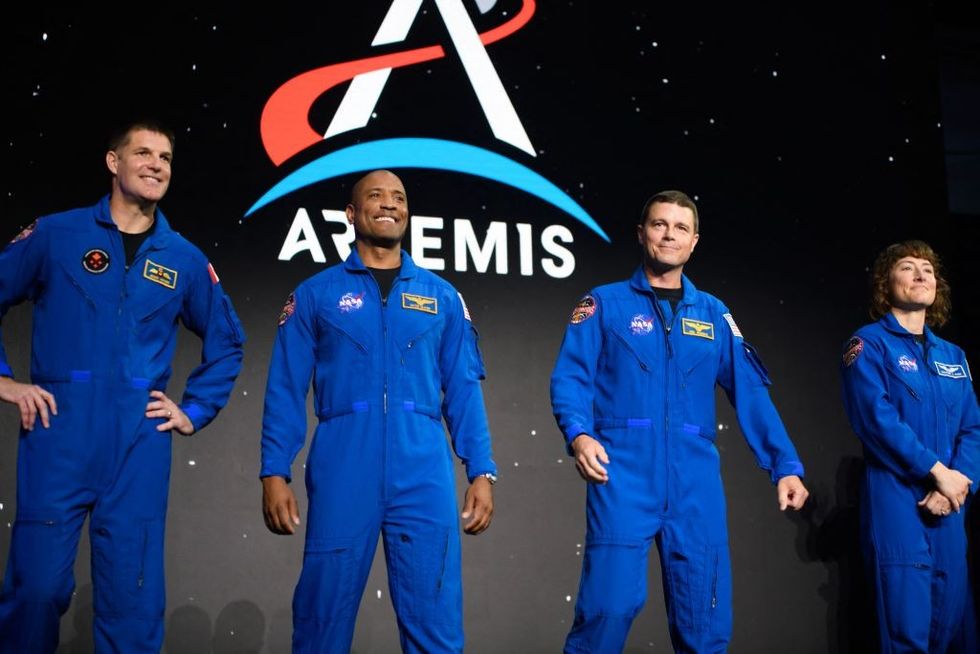Nasa hit by giant step backwards as moon landing pushed back by years over 'concerns'
The Artemis II was expected to be the biggest space trip of 2024
Don't Miss
Most Read
Trending on GB News
Nasa has delayed its anticipated return to the moon by several years following "safety concerns", the agency has revealed.
The Artemis II was expected to be the biggest space trip of 2024, but has been pushed back until September next year.
Its follow-up, Artemis III, won't take place until September 2026.
The space agency said the delay to its Artemis programme – the successor to the Apollo programme of the 1960s and 1970s - is due to safety concerns.

The Artemis II was expected to be the biggest space trip of 2024
Getty
Artemis II is set to send four astronauts on a trip around the moon before returning home, while Artemis III will actually land humans on the lunar surface.
The Artemis III will mark the first time humans have walked on the moon since the Apollo 17 mission of December 1972.
According to government estimates, the total programme will cost $93billion (£73billion).
The moon landing has been consistently delayed over numerous years.
LATEST DEVELOPMENTS:
Nasa administrator Bill Nelson said: "To give Artemis teams more time to work through the challenges with first-time developments, operations and integration, we’re going to give more time on Artemis II and III.
"So what I want to tell you is we are adjusting our schedule to target Artemis II for September of 2025, and September of 2026 for Artemis III, which will send humans for the first time to the lunar south pole.
"Artemis IV remains on track for September 2028 and though challenges are clearly ahead our teams are making incredible progress."
Nasa is using private companies for its Artemis moon-landing programme, including Elon Musk's company SpaceX.

The Artemis III will mark the first time humans have walked on the moon since the Apollo 17 mission of December 1972
Getty
Despite the new delay, a 2026 moon landing represents "a very aggressive schedule", admitted Amit Kshatriya, Nasa's deputy associate administrator.
"We need them all to be ready and all to be successful in order for that very complicated mission to come together."
The Artemis programme did complete its first mission, Artemis I, in late 2022.









